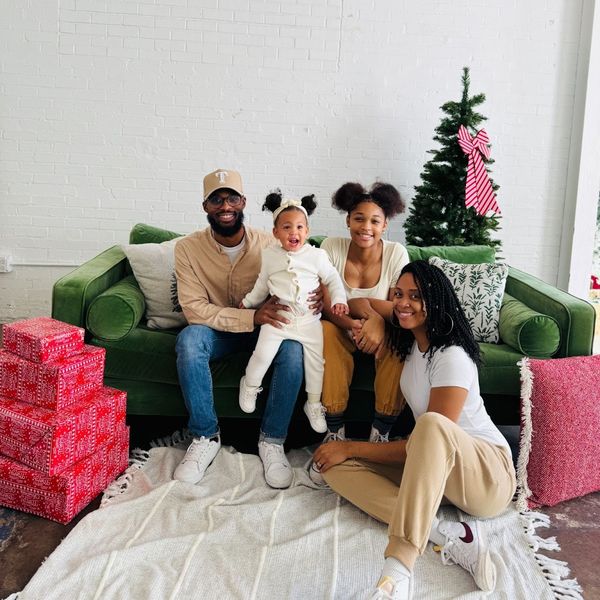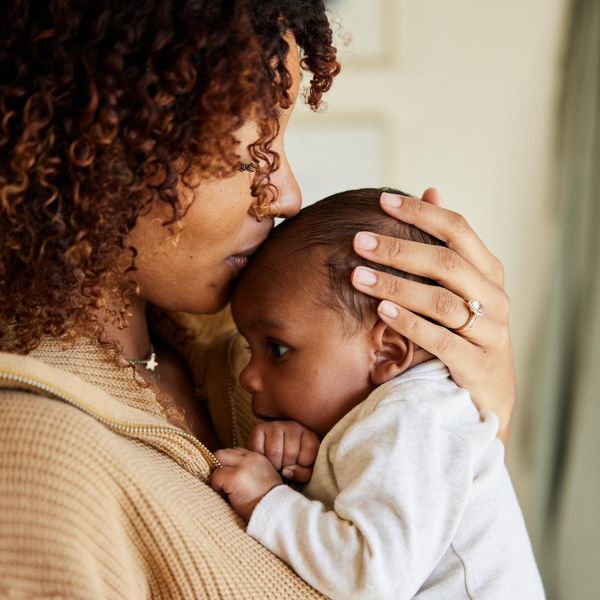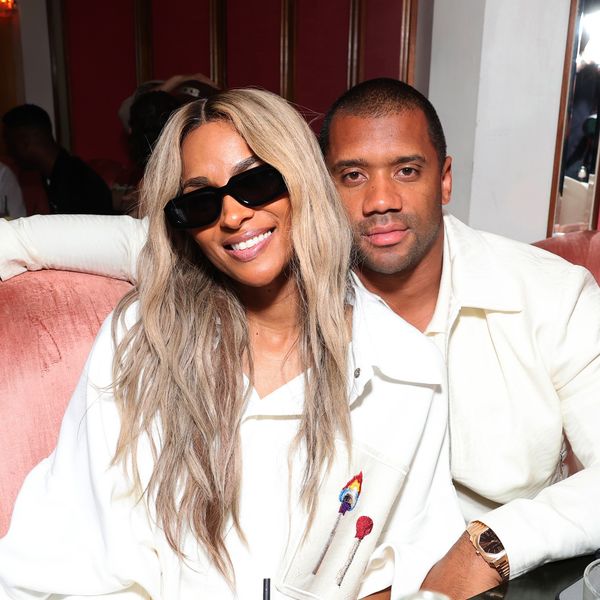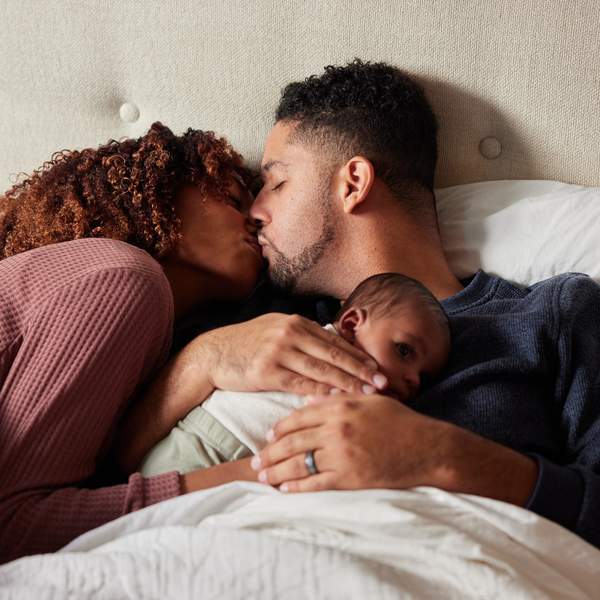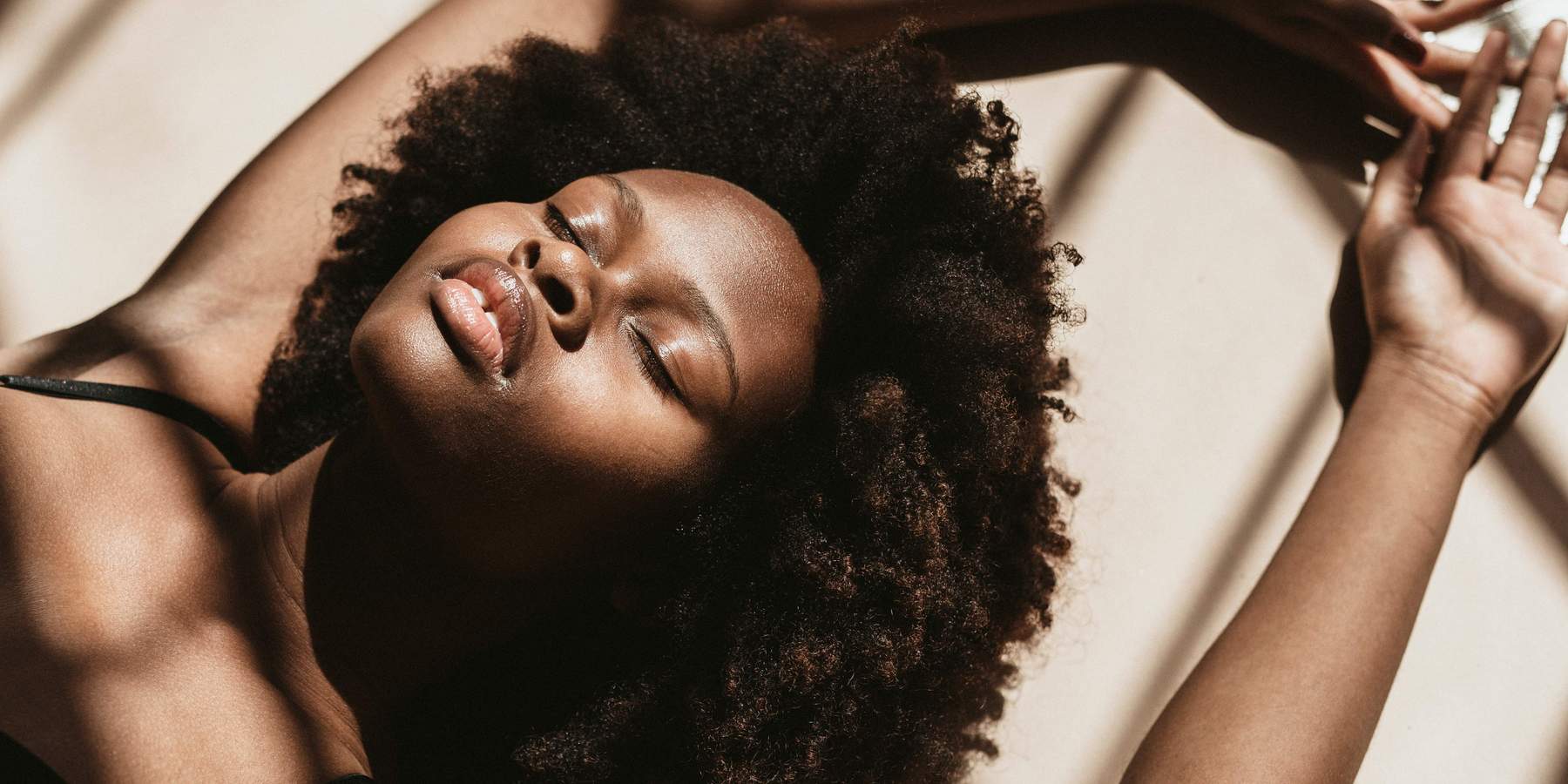I felt my husband’s leg tapping underneath the table, and I calmly put my hand on top of it. The doctor on the other side of the screen had just matter-of-factly told us that the likelihood of us having a child “the natural way” was slim to none and immediately recommended IVF.
“I’m going to have a financial counselor call you as early as next week.”
The call was quick. The doctor didn’t extend any empathy or any type of emotion - but I also didn’t know what to expect. The abrupt push for IVF didn’t feel right at the moment - I did know that.
I remember this day like it was yesterday. It was September of 2020, a few days shy of my oldest daughter’s 11th birthday, and we were still knee-deep in COVID, so all non-life-threatening appointments were virtual.
We had been trying for a baby for a year (as most doctors will tell you, that is the length of time to try for a baby before seeking medical attention), and nothing was budging. We moved to Dallas in May of 2020, and one of the first things I did was find Black practitioners to help me along this baby-making journey.
I found a Black female OBGYN who I thought was a sound choice, but after sharing my history of ovarian cyst bursts and learning that I had two small polyps in my uterus, she proceeded to tell me:
“I don’t feel the need to remove them, but if you were to get pregnant and possibly miscarriage, then I would go in to remove them.”
I was stunned. If you know I am actively trying for a baby, and you know there is something inside of me that could potentially prohibit that from happening, why would you fix your lips to say that to me?!
Needless to say, that was the last time I ever saw that doctor, and I immediately went on a search for a new OBGYN. Little did I know that was going to be one of the many times when I had to actively advocate for myself throughout this fertility journey.
Ironically, this OBGYN recommended the fertility specialist who laid the very harsh news on me and my husband that following September. While IVF may have been our only option, I knew in my spirit that this doctor wouldn’t be the right choice to walk along this journey with. We needed someone to deliver facts as well as empathy and compassion.
I didn’t want to feel like just another number. Another line item. After processing what was said and allowing my husband and myself to have a moment, I immediately started looking for a second opinion.
Always.
Always.
Always.
Get a second opinion.
My Marriage
Witnessing my husband’s response was gut-wrenching for me. I am grateful to have a partner who has never been ashamed of expressing his feelings, but I feel as though I saw hope leave his eyes. It was a lot to take in. Not just learning that we would need medical intervention to maybe have a child of our own (because there is no guarantee with IVF), but that he had also spent the past 6 years helping me raise my daughter - a little girl he claimed but shared no genes with.
“However long you need to process. Take your time. But whatever you do, please promise me that you won’t give up. That is all I ask.”
This is what I expressed to him at the moment and continued to express leading up to our actual IVF journey.
He honored that.
Starting IVF
We ended up getting a second opinion, and it affirmed what the initial doctor had told us, but this doctor was more compassionate in her facts and her language. I felt safe in her care, and we began discussing the next steps.
This included contacting my insurance company to see what all was covered on their end and how much we would have to come out of pocket. I can’t even begin to count how many times I called to speak with a rep or put in a request to chat with them through the chat box and save the transcript to ensure I was getting told the same thing from each rep.
I learned that all of our diagnostic testing was covered:
- Sonohysterogram
- Hysteroscopy
- Hysterosalpingogram (HSG)
- Ovarian Reserve Testing
- Semen Analysis
This doctor even removed those small polyps from my uterus that the previous doctor opted not to do.
“This journey costs way too much money to have anything that we can easily remove stand in the way of progress.”
Say less, doctor, say less.
Unfortunately, that is where the grace stopped with insurance. The diagnostic testing was the only thing that was covered. To actually begin IVF, we would have to come up with $20,000 for the cycle, PLUS another $5,000 to get our embryos tested if that is what we wanted.
We did not have that type of money.
But as of January 25, 2021, none of this would matter.
I was rushed to the hospital for what I now know to be my very first IBD flare. After a four-day emergency hospital stay and a colonoscopy, I was diagnosed with an autoimmune disease called ulcerative colitis - the most common type of inflammatory bowel disease that causes inflammation in the colon.
“I understand that you are trying for a baby, but I strongly suggest you prioritize getting into remission before starting your IVF cycle,” my gastroenterologist recommended at the time.
Although my head understood the practicality of it all, this felt like a blow to my heart and spirit. This felt like another speed bump on our journey to have a baby - on top of the infertility speed bump we still hadn’t gotten over.
But I took heed to her words and did just that. I completely changed my diet, added supplements to my daily regimen, joined the gym, and did my best to keep my stress down.
I also took this time to lean into my marriage and my baby girl, who was alive and well and getting ready to start middle school. In hindsight, it felt good to not be fixated on IVF, even if just for a moment.
The road to remission would take me the remainder of 2021 but in true “God be knowing” fashion, I would end up securing a new job this same year with insurance that would cover my entire IVF cycle PLUS meds.

Courtesy
I remember how I felt when the box of injection meds showed up on my doorstep. I anticipated the delivery but also couldn’t believe we were actually getting started. We were officially approved for our IVF cycle in January of 2022, and I was set to begin taking injections that following day.
It was a mixture of five meds that needed to be taken at the exact same time every single day for 12 weeks.
Every.
Single.
Day.
My husband and I watched the tutorials on how to mix the meds and the ideal injection site to prevent lump bruising.
I was excited but equally nervous because what if I was doing all of this to my body and we didn’t get the outcome we desired?

Courtesy
In March 2022, I had my egg retrieval, which turned into seven healthy embryos.
On May 17, 2022, I had a successful embryo transfer.

Courtesy
On days 6 and 8 post-embryo transfer, just a few days away from going back to the clinic to see if I was, in fact, pregnant, I purchased two pregnancy tests, and both of them had positive results.

Courtesy
When we did finally go back to the fertility clinic, my blood test only confirmed what the at-home tests read. We were pregnant!
We’re Expecting
This exciting news didn’t come without its own scares.
Trigger Warning:
When we were seven weeks along, one day before we were scheduled to hear the heartbeat, I experienced what I now know to be a subchorionic hemorrhage (hematoma). A subchorionic hematoma is when blood forms between a baby's amniotic sac and the uterine wall.
I was on a flight back home from a work trip, and as soon as I stood up to deplane, I felt a rush of liquid in my pants. I went to the restroom and believed I was miscarrying.
Our first appointment since our pregnancy was confirmed the next morning, and I was believing the worst, but when we put the ultrasound wand on my belly, we heard the most beautiful sound. Our baby was doing just fine.
Our doctor confirmed the hematoma and ordered pelvic rest as, unfortunately, there is no resolve for subchorionic hemorrhages. It happens in about ⅕ of pregnancies, and while they don’t cause serious health conditions for the mom, they can cause miscarriages. These are even more common in IVF pregnancies.
This same afternoon, after returning home from our appointment, my body would have another episode. I just knew this time we had lost our baby. I found an after-hours facility that provided ultrasounds by appointment, and we went to check on our baby.
Again, our baby was doing just fine, and the heartbeat was strong. As the doctor said before, pelvic rest and be patient.
Prayer Warriors + Intercessors
Outside of a select few family members and close friends, we kept this journey close to the vest.
I didn’t feel as though sharing openly would necessarily jinx our process, but I knew I wouldn’t want those who would pray for us at the drop of a dime and meant us well to be in on the intimate details.
Between these few people and Facebook Infertility Support Groups, this was our saving grace.I knew how important having a community was throughout this process, specifically amongst those walking the same path as us. To this day, I am still involved in these support groups and share insight with those moms at the beginning of their journey.
Love at First Sight
On January 26, 2023, at 7:17 a.m., our miracle child, Demi Rae, was born right on our living room floor.
Now, that wasn’t the initial plan, but I knew we wouldn’t make it to the hospital. From my water breaking to her making it earthside, she was here in a total of 15 minutes, right in her daddy’s arms.
It was perfect.

Courtesy
My original desire for delivery this second time around was to give birth at home, but my anxiety convinced me otherwise. I had a doula and found a midwifery company that walked us through our birth plan, and even though nothing went according to plan, I am grateful for my birth team.
Our doula walked us through best-case and not-so-best-case scenarios. Meaning, that if we didn’t make it to the hospital, we would be prepared to confidently and safely bring her into the world.
As I am on all fours in the living room, my husband has our doula on the phone along with the paramedics to guide us through this tender moment. But to welcome our baby girl into this world with just him and I was a level of intimacy I am so grateful for and wouldn’t have had it any other way.
We went from being told we wouldn’t have our own biological child to constantly redirecting a soon-to-be two-year-old from slapping folks every time she doesn’t get her way. Life does come at you quick.
Demi is such a happy child and brought so much energy into our home, and to see the relationship between my two girls growing every day does my heart well.

Courtesy
I never thought IVF was going to be a part of our story, but now that we are on the other side, I make it a point to share our story and hold space for other couples (especially couples of color) who are fearful of infertility diagnosis and need to see that IVF can be an option for them too. It is not ideal, I get it, but it can be a solution.
In June of 2024, in honor of Infertility Awareness Week, I hosted a panel of other women who have gone through IVF (both successfully and unsuccessfully) to share their experience and give their insight into what their life is like now as well as a Q+A with a well-known infertility doctor for community members to have direct access to a medical professional.

Courtesy
Seeing other Black women in the fertility space normalized the journey for me, and I want to be a resource for others like the women in these support groups have been for me.
Prayers to the couples who are experiencing infertility and feel saddened, angry, and lost. I get it. I truly do. But this does not have to be the end all be all.
Talk to a therapist.
Consult with your insurance company to see what is covered if you are going the IVF route.
Join support groups like Black Women TTC and Black Women and Infertility.
Schedule a consult with a fertility doctor to learn all your options (and get a second opinion).
Get a workup done to learn your health status all around.
Pray.
Stay encouraged.
Let’s make things inbox official! Sign up for the xoNecole newsletter for love, wellness, career, and exclusive content delivered straight to your inbox.
Featured image courtesy



